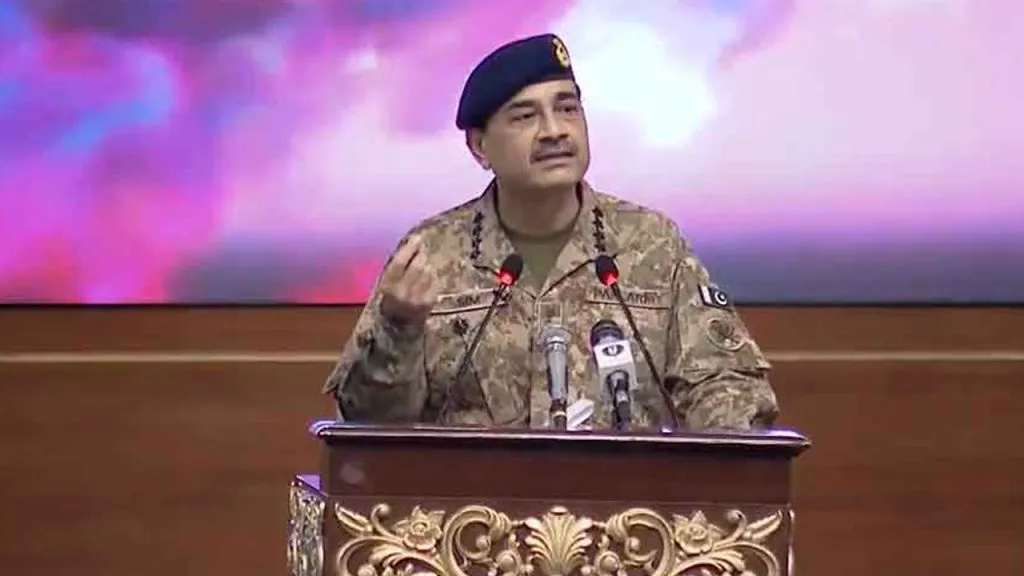In a recent statement that underscores the ongoing security challenges faced by Pakistan, Field Marshal Asim Munir, a senior military official, has pointed the finger at India for allegedly supporting terrorist activities in the southwestern province of Balochistan. This declaration reflects Pakistan’s deep concerns over the persistent violence in the region and the larger geopolitical implications of cross-border interference.
Balochistan, Pakistan’s largest province by area, has long been a hotspot for insurgency and militant activity. The province, rich in natural resources yet underdeveloped in many areas, has experienced decades of unrest, fueled by ethnic grievances, economic disparities, and claims of political marginalization by the local Baloch population. Against this backdrop, security forces have been engaged in ongoing operations to stabilize the region, but frequent terrorist attacks continue to disrupt peace and development efforts.
Field Marshal Asim Munir’s recent remarks explicitly accuse India of playing a key role in fomenting unrest in Balochistan by supporting terrorist groups operating there. According to Munir, this external involvement is part of a larger conspiracy aimed at destabilizing Pakistan from within, undermining its sovereignty and national security. He emphasized that both internal and external plots are being closely monitored and will be decisively countered by Pakistan’s military and intelligence agencies.
These allegations are not new and have been part of the broader narrative between Pakistan and India, two regional rivals with a long history of conflict and mutual distrust. Pakistan has repeatedly accused India’s intelligence agency, RAW (Research and Analysis Wing), of providing training, funding, and logistical support to insurgent groups in Balochistan to destabilize Pakistan. On the other hand, India has consistently denied these claims, describing them as baseless and politically motivated.
The security situation in Balochistan remains precarious, with numerous attacks on civilians, security personnel, and infrastructure reported in recent years. These incidents have claimed many lives and caused widespread fear among the local population. The Pakistani military has responded with intensified counterterrorism operations, including targeted raids, intelligence-driven missions, and efforts to improve coordination with local law enforcement. The objective is to dismantle militant networks and restore stability to the region.
Field Marshal Munir reiterated Pakistan’s resolve to ensure that Balochistan becomes a peaceful and prosperous part of the country. He expressed confidence in the armed forces’ capabilities to neutralize threats and thwart conspiracies designed to divide and weaken Pakistan. Furthermore, he called for unity among political parties, civil society, and the general public to support these efforts and reject any forces that seek to foment discord.
The situation in Balochistan also carries significant strategic implications. The province borders Iran and Afghanistan and serves as a critical corridor for Pakistan’s economic projects, including the China-Pakistan Economic Corridor (CPEC), a flagship initiative under China’s Belt and Road Initiative (BRI). Ensuring security in Balochistan is therefore essential not only for Pakistan’s internal stability but also for its regional economic ambitions.
Internationally, Pakistan has sought support from various global partners to counter terrorism and extremism. Field Marshal Munir’s comments highlight the need for a coordinated international response to combat external interference and terrorism. Pakistan emphasizes that terrorism is a global threat that requires cooperation and collective action rather than politicization or selective accusations.
Critics of Pakistan’s narrative argue that internal grievances in Balochistan need to be addressed through political dialogue, economic development, and respect for human rights. They caution that military solutions alone may not resolve the underlying issues and could exacerbate tensions if not accompanied by meaningful engagement with local communities. Nevertheless, Pakistan maintains that security is a prerequisite for any sustainable development and that combating terrorism remains its foremost priority.
In conclusion, Field Marshal Asim Munir’s statements reflect the ongoing complexities of the security environment in Balochistan and the broader geopolitical rivalry between Pakistan and India. The accusation of Indian involvement in terrorism within Pakistan underscores the entrenched mistrust between the two countries and the challenges in achieving lasting peace. As Pakistan continues its efforts to secure Balochistan and counteract both internal dissent and external meddling, the situation demands careful balancing of military action, political solutions, and international diplomacy.
Pakistan’s commitment to thwarting terrorism and protecting its sovereignty remains firm, with a clear message that no internal or external conspiracy will be allowed to disrupt the nation’s stability. The road ahead for Balochistan, while challenging, is critical for Pakistan’s future security, development, and regional standing.









